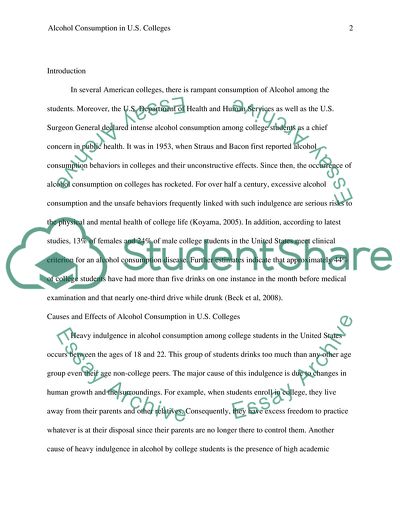Cite this document
(Alcohol Consumption in US Colleges and Teenage Life Style Coursework Example | Topics and Well Written Essays - 1250 words, n.d.)
Alcohol Consumption in US Colleges and Teenage Life Style Coursework Example | Topics and Well Written Essays - 1250 words. https://studentshare.org/psychology/1753290-alcohol-consumption-in-us-colleges-teenage-life-style
Alcohol Consumption in US Colleges and Teenage Life Style Coursework Example | Topics and Well Written Essays - 1250 words. https://studentshare.org/psychology/1753290-alcohol-consumption-in-us-colleges-teenage-life-style
(Alcohol Consumption in US Colleges and Teenage Life Style Coursework Example | Topics and Well Written Essays - 1250 Words)
Alcohol Consumption in US Colleges and Teenage Life Style Coursework Example | Topics and Well Written Essays - 1250 Words. https://studentshare.org/psychology/1753290-alcohol-consumption-in-us-colleges-teenage-life-style.
Alcohol Consumption in US Colleges and Teenage Life Style Coursework Example | Topics and Well Written Essays - 1250 Words. https://studentshare.org/psychology/1753290-alcohol-consumption-in-us-colleges-teenage-life-style.
“Alcohol Consumption in US Colleges and Teenage Life Style Coursework Example | Topics and Well Written Essays - 1250 Words”. https://studentshare.org/psychology/1753290-alcohol-consumption-in-us-colleges-teenage-life-style.


